RTM Modelling Concepts
|
The aim of any modelling approach is to create an abstract representation of reality. Put simply, it needs to enable users to understand the following:
- What the ‘physical view’ of what can be viewed in the field.
- Where the location of assets.
- How the connections between neighbouring assets.
- When the life time of assets
- Why the business rules which dictate how the infrastructure operates.
The ‘where’ and the ‘how’ comprise the building blocks to this model, i.e. they are the independent foundation layers on which the model is built.
The ‘why’ drives the model’s application, and helps utilise the information in the foundation layers to identify how the network operates.
Connexity graph
The Connexity graph is a fundamental mathematical concept. This concept is used in RailTopoModel® only to modelize the topology of the network. Read this section if you want to find out more about the differences to classic node edge approach of graph theory.
Core elements
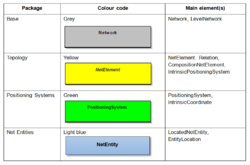
This section describes the basic components of RailTopoModel® . Read Core elements if you are interested in the principles of building the model.
Levels of detail
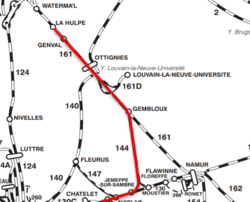
The RailTopoModel® approach considers several different levels of detail that are linked with each other via aggregation. Read Levels of detail if you want to learn more about how these levels are defined and how they are connected.
Structure
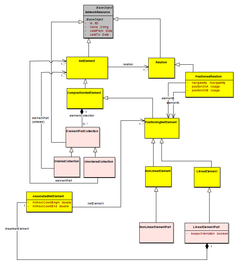
This part describe the topological Structure of the network.
Positioning
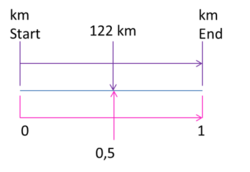
Positioning of assets is a central concept of RailTopoModel® . It includes both, the classical track-related topologic positioning from the railway domain and the coordinate positioning from geodesy. Read the details about these different types of positioning and the approach of linking them in Positioning.
Object positioning in the network
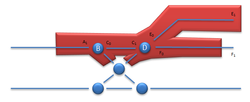
The question "How to locate elements in the RailTopoModel® network" is focus of the explanations in the section Object positioning in the network.
| What you should have learned | |||
|---|---|---|---|
| Please, enter a summary! | |||
| Navigation | |||
| Home | ← | • | → |
| Chapter | RailTopoModel® Quick Start | RailTopoModel® Modelling Concepts | RailTopoModel® External References |
| Section | Connexity graph | ||
| Subection | |||